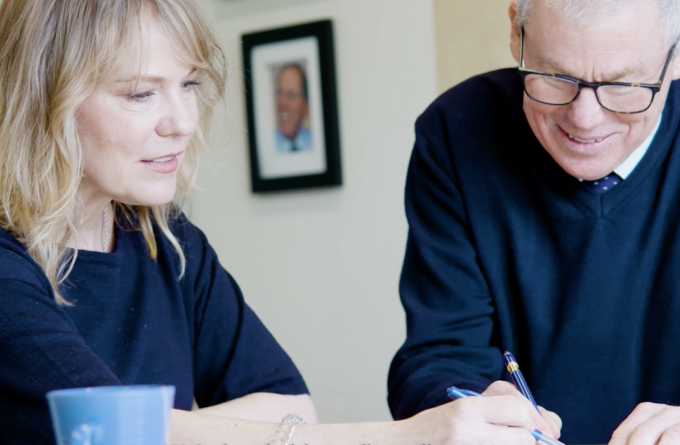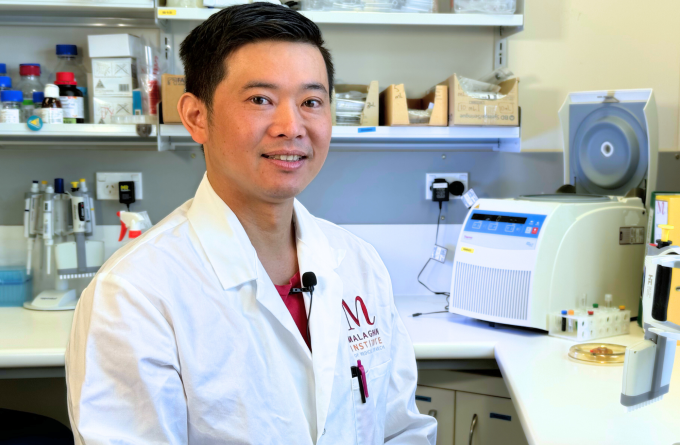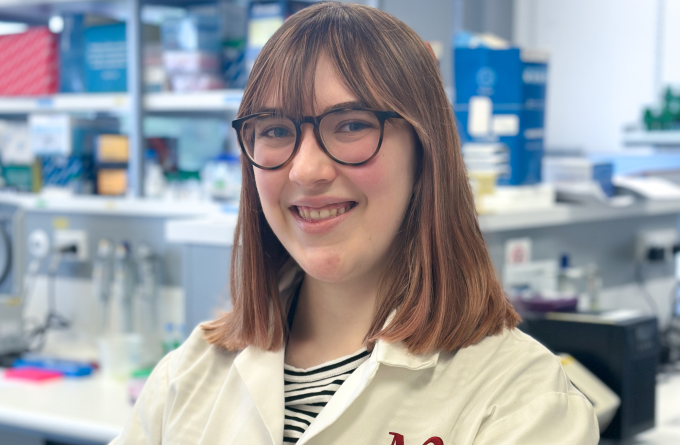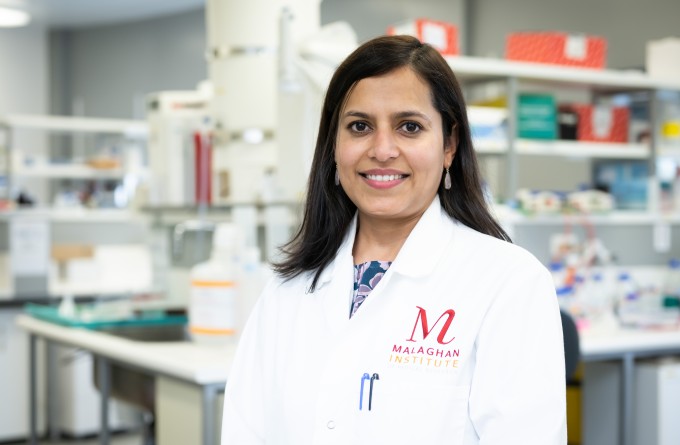16 February 2022
Dr Francesco Vacca’s research is helping establish the safety and efficacy of human hookworm therapy for the treatment of allergic and autoimmune diseases
Every year, we are seeing a global increase in allergic and autoimmune diseases, especially in industrialised countries. Hookworms are human parasites, they infect and live in the intestine. However, there is much anecdotal evidence that hookworm therapy, intentionally infecting a person with live hookworms, is effective in alleviating the symptoms of allergic and autoimmune disease in humans. The Malaghan Institute is conducting a series of human hookworm clinical studies to understand if there really is a scientific basis to hookworm therapy for the treatment of inflammatory diseases. As a postdoctoral researcher, Dr Francesco Vacca is at the forefront of this project.
“Many people have allergic and autoimmune conditions that there is currently no cure for. I know that people who live with these diseases must endure constant hardship which severely affects their quality of life,” says Francesco. “I want to provide reliable answers and solutions for these people.”
When someone has an allergic or autoimmune response, the immune system overreacts and rather than protecting our body, it damages it. Although the concept of infecting a person with a parasite as a treatment may seem counter intuitive, hookworms have several mechanisms that work to regulate the immune system of its host. This means the body’s immune system is dampened by the hookworm, allowing the hookworm to survive in the body.
“We could use this mechanism to our advantage,” says Francesco. “What the hookworm might be able to do is regulate the over-activated immune system by releasing specific molecules which dampen inflammation.”
In his research, Francesco is trying to identify these molecules that the hookworm releases and the effect they have on specific immune cells in the body. This may allow us to understand if and how the hookworms alleviate allergic and inflammatory disease.
“If proven to be effective, hookworm therapy can provide a self-regulating, organic and affordable approach to the treatment of allergic disease,” says Francesco.
Francesco became interested in parasites and their therapeutic potential while undertaking his Master’s in Biomedical Science at Edinburgh Napier University. Combining this interest with his undergraduate research project in immunology, he decided to do his PhD on mechanisms used by a mouse parasite to modulate the immune system. He hoped that one day he would be able to translate his findings to help people suffering from allergies and autoimmune disorders.
Francesco found an opportunity to do just that when he heard about the hookworm clinical programme underway at the Malaghan Institute. After finishing his PhD in2019, Francesco travelled to New Zealand to take up a postdoctoral position in Professor Graham Le Gros’ Allergic and Parasitic Diseases team.
“I was so excited to hear about this trial! I’d never worked with human parasites before now, I really wanted to see how I could apply my research on parasite-host interactions to something that would directly help people,” says Francesco.
Growing up in a small town on the island of Sardinia, Italy, Francesco had a constant fascination with science, spurred on by his father who was a science teacher at his school.
“My father played a huge role in my decision to be a scientist. We had a large collection of books in the house. Books about astronomy, geology, the human body. Whatever interested me, we’d always have a book on it.”
He recalls memories of being woken up at 3am in the middle of balmy Sardinian summers to go and star gaze with his father. Equipped with a telescope he borrowed from the high school, Francesco’s father would show him the craters of the moon.
Francesco brings that same curiosity and enthusiasm to this clinical trial as he helps to underpin how exactly hookworms, that for generations we have tried to eliminate from our lives, might just be able to provide the solutions to our modern-day afflictions.
Related articles

Kjesten Wiig: bringing life-changing treatments to life
27 February 2025

Fighting allergic skin disease at its root
17 December 2024

Fighting allergic skin disease at its root
17 December 2024

Fighting allergic skin disease at its root
17 December 2024

As easy as breathing: the future of vaccines
31 October 2024

CAR T-cell therapy, the battle of the blood cells
26 September 2024
